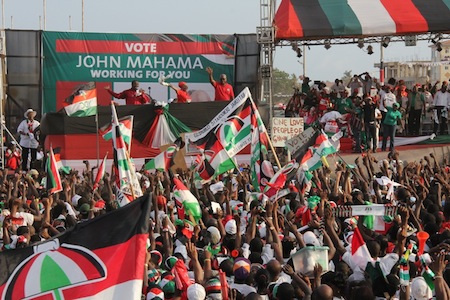Earlier this week, The Atlantic‘s David Graham pointed us to the fact that former Alaska governor and one-time Republican vice presidential candidate Sarah Palin fell behind just U.S. president Barack Obama and 2012 Republican presidential candidate Mitt Romney in popularity, at least in terms of most searched politicians.![]()
Graham notes:
I’m going to let you in on a little journalism secret. Time was, political reporters knew that any post about Sarah from Alaska was any easy way to get eyeballs. (In one week in May 2010, I wrote three separate items under the rubric “Sarah Palin Real-Estate Watch.” All were well-read.)
You want to know who doesn’t turn eyeballs?
Victor Ponta.
Indeed, if you look at a Google Trends analysis comparing Victor Ponta and Sarah Palin, you’ll see quite clearly just how much more often ‘Sarah Palin’ is searched than ‘Victor Ponta.’
Yet for all the attention to Palin, it’s not her, but Ponta, Romania’s prime minister, who arguably holds the greater role in influencing not only European affairs, but U.S. foreign policy as well.
His party is set to win an overwhelming majority on Sunday in Romania’s parliamentary elections — the latest polls show his party/alliance, the Uniunea Social Liberală (USL, Social Liberal Union), with 62% of the vote and just barely one-fourth that support for the nearest opponent. It’s important because Ponta has increasingly been viewed as bending the rule of law in order to benefit himself and his party. He initiated a constitutionally suspect referendum against Romania’s president, Traian Băsescu, and the two are likely to lock Romania in political paralysis for the foreseeable future. Continue reading What Sarah Palin means for the Romanian election

